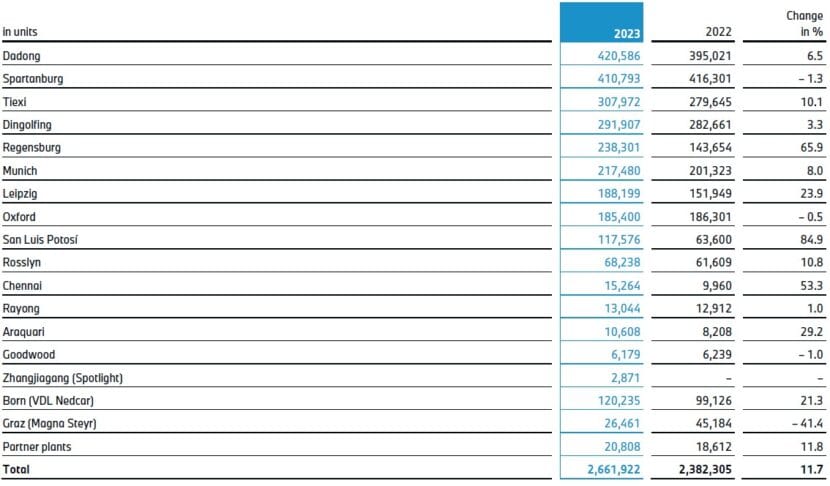
German automaker BMW has revealed in its Annual Report 2023 that the bulk of its cars were not produced in Germany last year. The top three most productive factories were located elsewhere, with the Dadong factory in China taking the lead by assembling 420,586 vehicles, marking a 6.5% increase from the previous year.
Spartanburg, also known as the home of the X, followed closely behind with 410,793 crossovers and SUVs manufactured in 2023, despite a 1.3% decrease in production compared to the previous year. Rounding out the top three was the Tiexi plant in China, which saw an output increase of 10.1% with 307,972 cars manufactured.
On the German front, Dingolfing emerged as the most prolific plant with 291,907 cars rolling off the assembly lines, representing a 10.1% increase from 2022. Regensburg saw the most significant percentage jump among German factories, producing 65.9% more cars than the previous year at 238,301 units. Munich and Leipzig followed with 217,480 units (+8.0%) and 188,199 units (+23.9%), respectively.
In total, BMW produced 2,661,922 cars across its own factories and manufacturing partner sites in 2023. This included models for MINI and Rolls-Royce, with production increasing significantly by 11.7% compared to the previous year, reflecting the new record BMW Group sales of 2,555,341 units (+6.5%).
Looking ahead to 2024, BMW’s production network is set to become even more intricate with the addition of new electric models being made in China. The electric MINI 3-Door hatchback and the Aceman subcompact crossover are now being produced at a new assembly plant in Zhangjiagang by Spotlight Automotive, a joint venture between BMW Group and Great Wall Motor.
Furthermore, by 2025, BMW plans to expand its production sites to include Debrecen in Hungary, where the next-generation iX3 luxury electric crossover will be built on the Neue Klasse platform. The move marks a strategic expansion of BMW’s global manufacturing footprint as it adapts to the growing demand for electric vehicles in the market.


